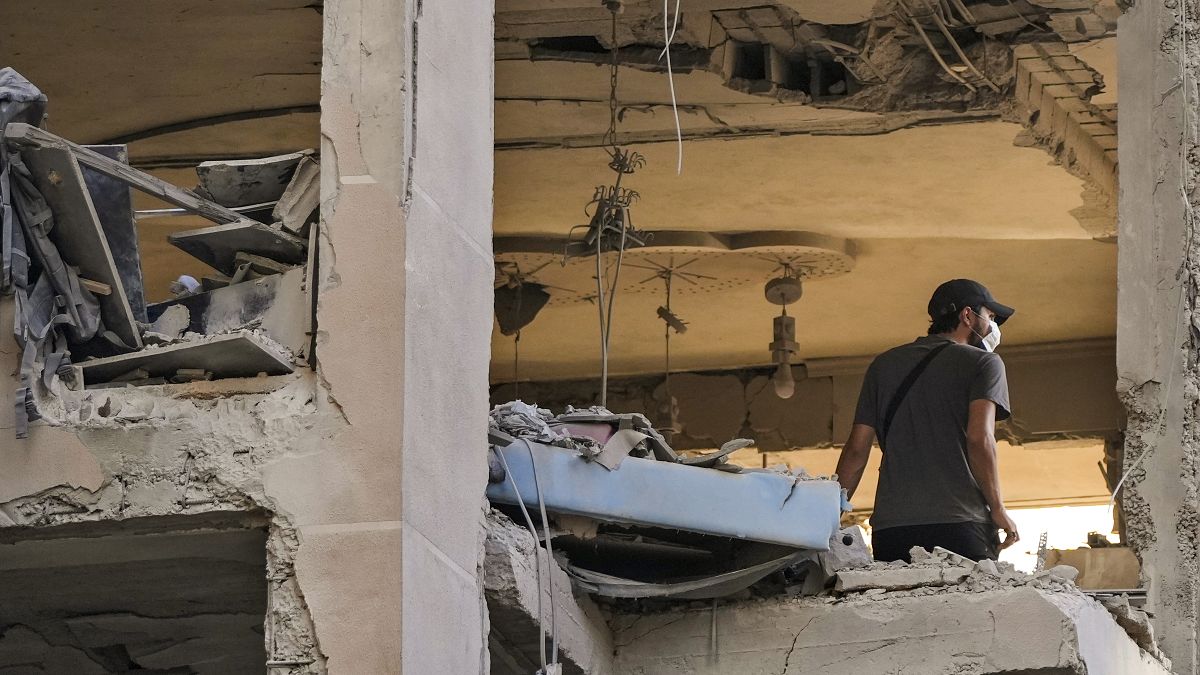Inside the break between the US and Israel over how to handle Hezbollah
It marked the first time in almost a year that the U.S. and Israel so starkly disagreed on how to handle Hezbollah.
In the days leading up to Israel’s onslaught of airstrikes against Hezbollah, U.S. officials warned the Israeli government that such a strategy would likely speed the region toward war, according to two senior U.S. officials and an Israeli official.
The U.S. told Israel that a diplomatic solution with Hezbollah was still possible and that a military campaign could derail that effort, the officials said.
Israel went ahead anyway.
Israeli officials didn’t discount Washington’s push for a diplomatic accord — but they disagreed with how to reach one. They told the U.S. it was time to “escalate to de-escalate,” said the Israeli official, who, like others in this story, was granted anonymity to discuss sensitive diplomatic discussions. That meant hitting Hezbollah hard enough that it would feel forced to participate in talks to end the conflict.
It marked the first time in almost a year that the U.S. and Israel so starkly disagreed on how to handle Hezbollah. And it raises questions about whether the administration’s plan for a diplomatic agreement to end the conflict along Israel’s northern border is attainable in the short term.
The U.S. has for months urged Israel to avoid ramping up its military campaign in Lebanon, worried it would only ignite tensions in the region and potentially spark a war. Washington passed that message through various diplomatic channels throughout the summer — in phone calls and in meetings in both Washington and Israel.
Israel had largely agreed with the Washington-proposed diplomatic effort until late August when the Gaza cease-fire talks stalled. Israel saw an opening to adjust its military resources and to focus on degrading Hezbollah in the north.
In meetings last week, Israel made clear to Amos Hochstein, one of the president’s most senior advisers, that Hezbollah had shown no signs of wanting to engage in serious diplomatic talks and that Israel was set to ramp up the pressure on the group. U.S. officials later said they were given no advance warnings about last week’s pager and walkie-talkie attacks against Hezbollah. Israel is widely believed to have been behind those attacks, though it has not claimed responsibility.
The National Security Council declined to comment.
Israel’s strikes against Hezbollah have also ignited a debate inside the Biden administration about the effectiveness of Israel’s deluge of attacks and the potential for future violence in the region.
While some officials in the White House are generally supportive of Israel’s military strikes against Hezbollah, others in the Pentagon and the intelligence community are not confident that its strategy will work — that Hezbollah will engage diplomatically.
Some officials have grown increasingly frustrated and uneasy about the rising death toll in Lebanon as a result of Israel’s airstrikes. While the administration is not yet willing to publicly declare the conflict a “war,” officials increasingly believe that the situation will be difficult — though not impossible — to correct, one of the senior U.S. officials said.
In briefings on Capitol Hill over the last week, defense and intelligence officials have told members of Congress they are worried Israel’s airstrikes may stoke even greater aggression from Hezbollah — a group that’s known to have extensive capacity internationally to organize and carry out attacks.
So far, Israeli Prime Minister Benjamin Netanyahu appears resolved to continue the campaign in Lebanon. The Israel Defense Forces said this week it is planning on ramping up attacks in Lebanon in the coming days.
“Hezbollah must not be given a break,” IDF chief of staff Lt. Gen. Herzi Halevi said in a statement Tuesday.
If the violence escalates, it risks pulling Israel and Hezbollah into an all-out war — a scenario the Biden administration has long tried to avoid. While to many the attacks may already feel like a war, Hezbollah has yet to fully retaliate for Israel’s recent attacks. If it does, it could pull both sides deeper into tit-for-tat strikes that could eventually add up to a much bigger conflict.
For months, Washington and Jerusalem agreed on an approach to calm tensions in the region. They tried to engage Hezbollah in talks to end the conflict on Israel’s northern border where the two sides have engaged in increasingly violent exchanges since Oct. 7. But Hezbollah has said it will not agree to a deal until a cease-fire is reached in Gaza.
“If we had a cease-fire and the release of hostages, I think there would be diplomatic ways to reduce the threat from Lebanon and allow Israel to restore their citizens near their border,” said Sen. Jack Reed (D-R.I.), the chair of the Senate Armed Services Committee. “Because of the intransigence mainly of Netanyahu, there’s been no diplomatic progress, so he’s choosing kinetic means.”
The targeted attacks on Hezbollah communications devices occurred shortly after Hochstein’s visit.
Then, late last week, it began its air campaign, bombing a residential apartment complex in Beirut. Over the last two days, Israel has intensified its aerial campaign, striking locations in southern Lebanon. Lebanese officials claim as many as 600 people have died as a result — the largest number of casualties since the 34-day war with Hezbollah in 2006.
U.S. officials still believe they can help broker a diplomatic deal between Israel and Hezbollah.
“Full-scale war is not in anyone’s interest. The situation has escalated,” President Joe Biden said during his final speech at the U.N. General Assembly on Tuesday. “A solution is still possible. In fact, it remains the only path to lasting security and to allow the residents of both countries to return to their homes.”
Joe Gould contributed to this report.
What's Your Reaction?


















































